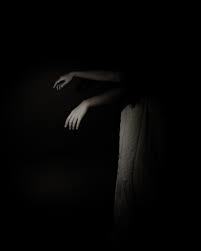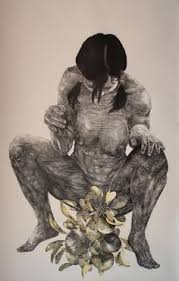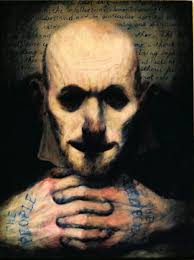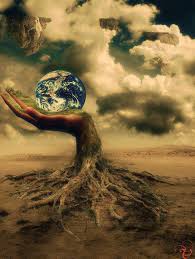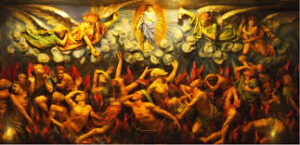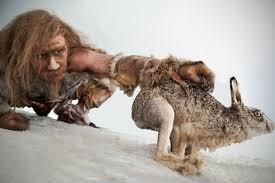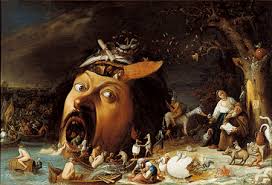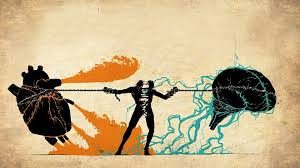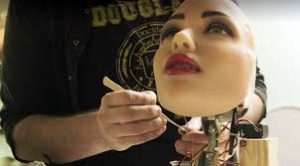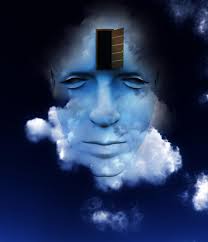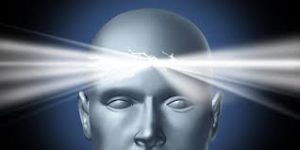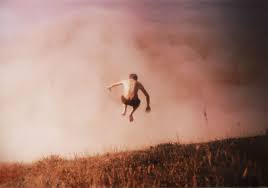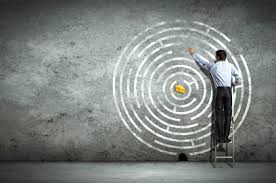A psychological universe, from which our own merges, and that inner universe is also the source of Framed-Mind-2 as well. It is responsible for all physical effects, and is behind all physical “laws.”
It is not just that such an inner universe is different from our own, but that any real or practical explanation of its reality would require the birth of an entirely new physics — and such a development would first of all necessitate the birth of an entirely new philosophy. The physical cannot come first , you see.
It is so much that such developments are beyond man’s and woman’s capacity as it is that they involve manipulations impossible to make for all practical purposes, from his or her present standpoint. He and she could theoretically move to a better vantage point in the twinkling of an eye, relatively speaking, but for now we must largely use analogies. Those analogies may lead us, or a few others, to a more advantageous vantage point, so that certain leaps become possible — but those leaps, we see, are not just leaps of intellect but of will and intuition alike, fused and focused.
The light of our questions is, in its way an apart from that other inner universe. In our world light has certain properties and limits. It is physically perceived by the eyes, and to a far lesser degree by the skin itself. In our world light comes from the sun. It has been an exterior source, and in our world light and dark certainly appear to be opposites.
Light is a comprehension that simply that is difficult to verbalize. I do not know how to explain some of this, but in our terms there is light within darkness. Light has more manifestations than its physical version, so that even when it may not be physically manifested there is light everywhere, and that light is the source of our physical version and its physical laws. In a manner of speaking, light itself forms darkness. Each unit of consciousness, whatever its degree, is, again, composed of energy — and the energy manifests itself with a kind of light that is not physically perceived: a light that is basically, now, far more intense than any physical variety, and a light from which all colors emerge.
The colors of which we are aware represent a very small portion of light’s entire spectrum, just physically speaking, but the spectrum we recognize represents only one inconceivably small portion of other fuller spectrums — spectrums that exist outside of physical laws.
So-called empty spaces, either in our living room between objects, or the seemingly empty spaces between stars, are physical representations — or misrepresentations — for all of space is filled with the units of consciousness, alive with a light from which the very fires of life are lit.
The physical senses have to screen out such perceptions. That light, however, is literally everywhere at once, and it is a “knowing light,” (As William James perceived.)
In certain occasions, sometimes near the point of death, but often simply in conscious states outside of the body, man and woman are able to perceive that kind of light. In some out-of-body experiences, for example, colors are more dazzling than any physical ones, and the same kind of colors in our dreams. They are a part of our inner senses larger spectrum of perception, and in the dream state we’re not relying upon our physical senses at all.
In dreams our worries are initially reflected — worries that are see by others but may be unconcerned, showing that the concern is our own, but expressing feelings. We may be viewing our representation of the many-faceted light of our own being.
When I speak of an inner psychological universe, it is very difficult to explain what I mean. In that reality, however, psychological activity is not limited by any of the physical laws that we know. Thought, for example, has properties that we do not perceive — properties that not only affect matter, but that form their own greater patterns outside of our reality. These follow their own, say, laws of physics. We add on to, or build up our own reality, in other dimensions throughout our physical life.
Paintings that we may have envisioned, for example, exist there, and they are every bit as real as paintings in our studio. I am not speaking symbolically here. There is indeed light that we do not see, sound that we do not hear, sensation that we do not feel. All of these belong to the realm of the inner senses. The inner senses represent our true powers of perception. they represent, say, our native non-physical perceptive “equipment.” The physical senses are relatively easy to distinguish: We know what we see from what we hear. If we close our eyes, we do not see.
The inner senses, though I have in the past described them by separating their functions and characteristics, basically operate together in such a way that in our terms it would be highly difficult to separate one from the others. They function with a perfect spontaneous order, aware of all synchronicities. In that psychological universe, then, it is possible for entities “to be everywhere at once,” aware of everything at once. Our world is composed of such “entities” — the units of consciousness that form our body. The kinds of conscious minds that we have cannot hold that kind of information.
These units of consciousness, however, add themselves up to form psychological beings far greater in number than, say, the number of stars in our galaxy (over 400 billion of them), and each of those psychological formations has its own identity — its own soul if we prefer — its own purpose in the entire fabric of being.
That is as far as we can carry that for this blog. We need some new carriers for the concepts. But the light itself represents that inner universe, and the source or all comprehension.
Uncomplete paintings sometimes, in our minds, we see colors more brilliant than any physical ones, and so in a fashion we end up trying a too-literal translation — too literal because a real translation would require colors and even symbols that we do not have on a physical basis. If we think of those colors as being inside us, even in our own cellular comprehension, then we will not be so careful.
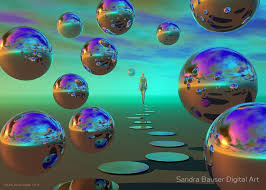




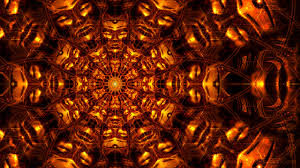

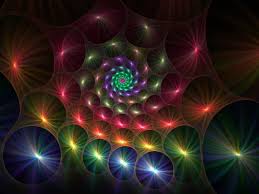

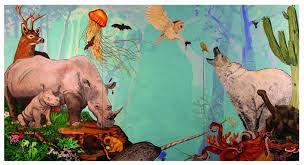
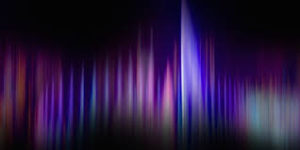





![For centuries the Roman Catholic church held [Western] civilization together](https://zzzesus.com/wp-content/uploads/2016/06/ag1.jpg)











